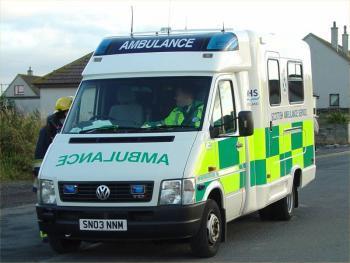Staffing issues are leading to a rising number of patients being left in the lurch because of a lack of transport to take them for appointment, ambulance bosses have admitted.
The service is to implement a new pilot plan to try and reduce a rising number of pre-booked trips which are later cancelled across the Highlands.
But a Sutherland councillor has warned that the service is reaching a “tipping point” for patients in remote parts of the Highlands, particularly when combined with proposed changes to out of hours medical provision.
Holidays and sickness among ambulance staff and a limited relief capacity has been blamed for the issue.
The issue is most acute in Caithness, Skye & Lochalsh and the Ullapool area, where up to 13% of all planned journeys between April and Agust this year have had to be cancelled.
Ambulance bosses have admitted that cancellations are likely to increase in the short term because of a reduction in the number of ambulance care assistants
Councillor Linda Munro, North, West and Central Sutherland, said: “Patient transport is an extremely serious issue for people up here because we don’t have the public transport so there is a cancellation then there is nothing to fall back on.”
She added: “It’s going to get to a tipping point fairly soon and Scottish ministers are going to have have to take a serious look at this area because problems like patient transport and out of hours care will all add up.”
The cancellations concern pre-booked patient transport to appointments and for hospital treatment rather than emergency ambulances.
In the Ullapool area 13.33% of all trips were cancelled, while 12.73% in Caithness were called off.
A report due to go before councillors this week said that Caithness had been affected by two staff on long term absence.
At the opposite end of the scale Tain has the least cancellations with just 1.18% of journeys being called of.
Invernessm where the most trips are made, had 2.25% cancelled.
A Scottish Ambulance Service spokesman said: “The has been and increase in cancellations of journeys for patients using the Patient Transport Service, which has been affected factors such as by sickness absence and annual leave.
“A pilot programme to improve capacity management aims to reduce cancellations by introducing more effective long term appointment planning, along with a more flexible approach to arranging transport that best suits patient needs.”
